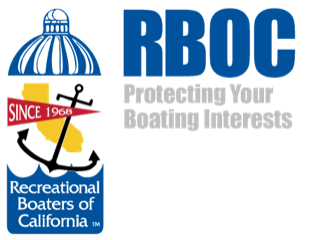RBOC is extending its appreciation to Senator Jerry Hill [D-San Mateo] for his consideration of the concerns raised by RBOC and his decision to remove from SB 65 provisions that would have extended the boating under the influence [BUI] laws into the Vehicle Code with a prohibition against individuals drinking alcoholic beverages while operating a boat or riding as passengers aboard a boat.
This provision would have been in addition to the significant BUI laws set forth in the Harbors and Navigation Code. The current, extensive provisions of these state laws aim to strike an effective balance that prevents boating under the influence, effectively enforces the extensive state BUI laws, and acknowledges the boating experience.
As set forth on the state Division of Boating and Waterways website, the state BUI laws include:
- No person shall operate any vessel, water skis or similar device while under the influence of intoxicating liquor or drugs.
- No person who is addicted to any drug shall operate any vessel, water skis or similar device.
- No person 21 years of age or older shall operate any vessel, water skis or similar device who has 0.08 percent or more, by weight, of alcohol in his or her blood.
- A level of at least 0.05 percent, but less than 0.08 percent, may be used with other evidence in determining whether the person was under the influence of alcohol.
- A person under 21 years of age or older who has been arrested for operating a mechanically propelled vessel “under the influence” may be requested to submit to a chemical test to determine blood-alcohol content.
- A person convicted of operating a vessel while intoxicated could receive up to a $1,000 fine and six months in jail.
- No person under 21 years of age may operate a vessel, water skis or similar device who has 0.01 percent or more of alcohol in his or her blood by weight.
- Penalties may include a fine of up to $250 and participation in an alcohol education or community service program.
In addition to supporting these laws, boaters are doing our part financially. Several million dollars are provided to local boating enforcement each year in the form of boater-derived state fuel tax dollars and registration fees.
As amended on March 28, SB 65 focuses on an important issue: the use of marijuana in motor vehicles. The bill would make drinking an alcoholic beverage or smoking or ingesting marijuana or any marijuana product while driving, or while riding as a passenger in, a motor vehicle being driven upon a highway or upon specified lands punishable as either an infraction or a misdemeanor. The bill would also authorize a court to order a defendant to attend and complete a state-licensed driving-under-the-influence program in addition to those penalties.
